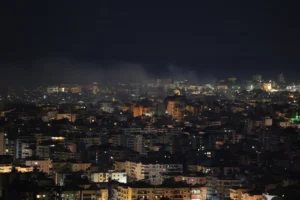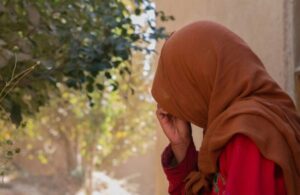KABUL (SW) – Salam Watandar’s findings from interviews with 18 female filmmakers show that in the past two years after the collapse of the Republic, female artists are in a bad economic and psychological situation and are also facing security threats.
Out of these 18 female cinematographers, eight of them who still live in Afghanistan say that they have suffered economic and psychological problems in the last two years.
Nafisa Nafis, who has spent 40 years of her life working in cinema, complained about her poor economic situation and said that she has been suffering from poverty for the past two years. She doesn’t have a guardian and she provides the needs of his family with the income he earns through her artistic activities.
Nafisa added: “I have worked in cinema for 40 years. In Afghanistan, I live with fear and trembling, I am a widow, I am the breadwinner of the house, and I lead my life with great economic difficulties. I ask the government not to stop us from working, I am worried about my life, I was working out of necessity.”
Bahar Hamdard, another Afghan cinematographer who has worked in the cinema industry for six years, also complained about the poverty that has plagued him after the collapse of the Republic.
She added: “I have been working in cinema for six years. Since the arrival of the Islamic Emirate, I have not had any artistic activity. There is no activity in the theater sector at all. Actors are facing economic problems. Through art, we lead our lives, now we are facing mental and emotional problems, we are not in a good state mentally.”
Among the eight female artists who are still living in the country, three of them have said that they cannot leave their homes due to security threats.
Tehmina Ahmadzai, another female cinematographer who now lives in Kandahar, said that after the collapse of the republican regime, she is not allowed to go to her workplace and does not leave her house for fear. She adds: “I have been working in the art of cinema since 2010, mostly in Kandahar province. With the arrival of the Islamic Emirate, all our activities were stopped. The current situation is very difficult, even we cannot go back to the place we had during the Republic. We ask the cinematographers who are abroad to support the cinematographers who are stuck in Afghanistan.
Meanwhile, a number of female cinematographers who have fled Afghanistan in the last two years cite security threats due to their activities in cinema and theater and economic problems as the reason for their migration.
Among the 18 cinematographers who were interviewed in this report, 10 female cinematographers who have gone out of Afghanistan in the last two years, one in Pakistan and one in France, and eight others have become refugees in Iran. They cite security threats due to their activities in cinema and theater and economic problems as the reason for their migration.
Yasmin Yarmel, who has worked in the cinema and theater industry for 40 years and now lives in France, told Salam Watandar that after the caretaker government came into effect, she fled Afghanistan due to security threats. She added: “I have worked in cinema and theater for more than 40 years, and I became an immigrant with the arrival of the Islamic Emirate. Although I didn’t want to, with a heart full of pain, I left and preferred to run away. I was repeatedly threatened.”
According to Ms. Yarmel, most of the women who worked in the cinema were the sole breadwinners of their families.
One of them is Marzia Azizi, an immigrant cinematographer in Iran. She said that after losing her husband in a suicide attack, her economic inability forced her to enter the cinema industry, but after the developments in the country, due to security threats and bad economic situation, she migrated to Iran.
Marzia added: “I have worked in cinema for 17 years, I lost my husband in a suicide attack, people warned me in every way, I had to immigrate to Iran. I have to work, I don’t have a supervisor.”
Leila Hamdard, another Afghan cinematographer who now lives in Pakistan, said that she is facing mental problems due to unemployment. She added: “I have worked in cinema and theater for 24 years and now I live in Pakistan. There were more women who were responsible for all household expenses and now they are unemployed. We are immigrants in Pakistan, we have no income. I have mental problems from unemployment.”
On the other hand, Sahra Karimi, the last head of Afghan Film during the Republic, told Salam Watandar that in the last 20 years, the presence of women in Afghan cinema was very prominent, but with the change of regime and the limitation of working space for female filmmakers, the country’s cinema industry has disappeared.
She added: “During the Republic in the last 20 years, one of the biggest changes that happened in the art of cinema was the prominent presence of women. Some became screenwriters, directors, made important films that reflected the people of Afghanistan, especially the women of Afghanistan. Unfortunately, with the change of regime, the real cinema industry of Afghanistan was paralyzed.”
The head of Afghan Film during the Republic emphasized that in the last two years, no film has been made in the Afghan cinema industry that reflects the lives of the citizens. She said: “They have a very wrong idea about cinema, they think it misleads people, but cinema introduces our culture, society and history to the world. The absence of cinema keeps a society away from seeing the realities.”
ENDS






